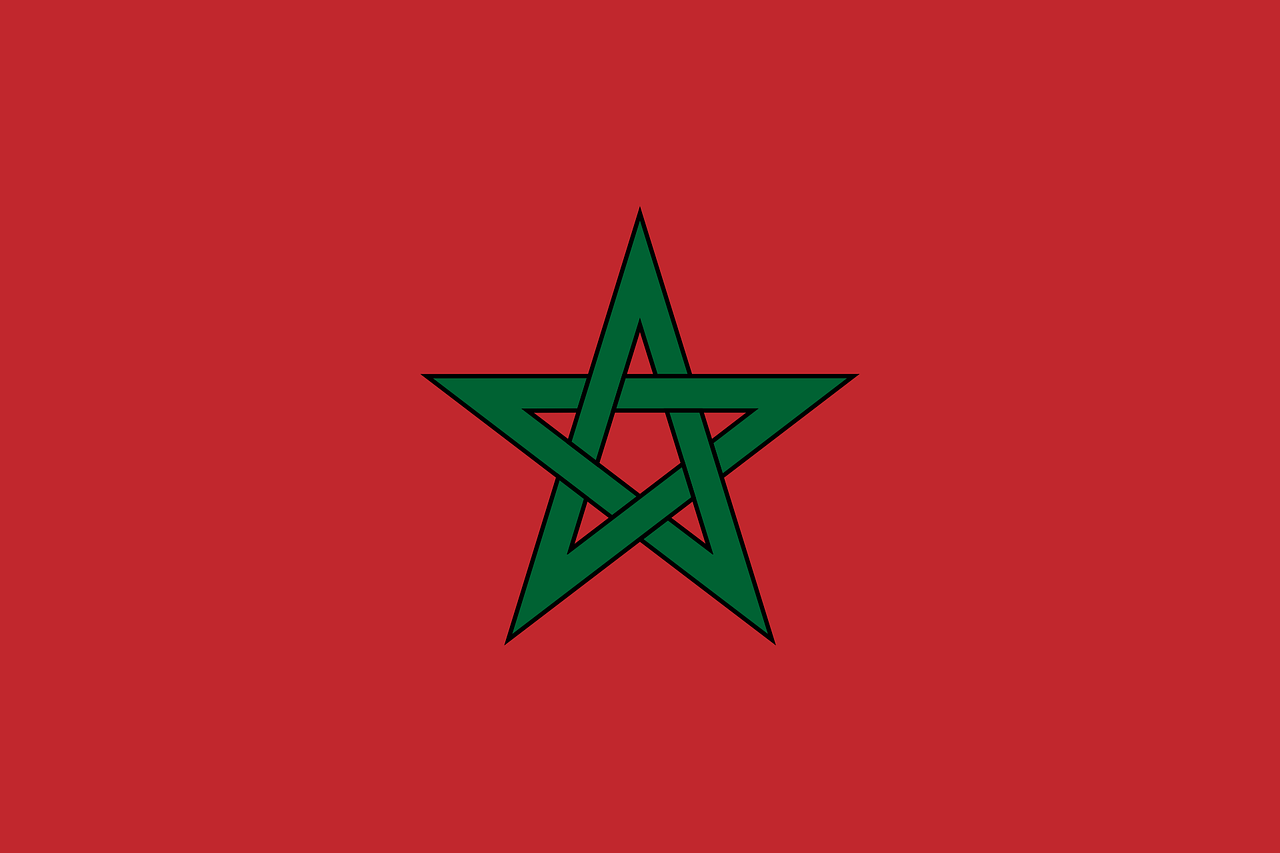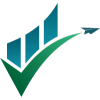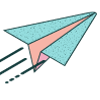Morocco
Overview
The Gateway to Africa, A Tapestry of Traditions and Modernity
Nestled at the crossroads of Europe and Africa, Morocco is a land of contrasts, where the snow-capped Atlas Mountains meet the golden dunes of the Sahara, and ancient medinas coexist with bustling modern cities.
Rabat, the capital, stands as a testament to Morocco's rich history, with its royal palaces, Andalusian gardens, and colonial architecture. Casablanca, the economic hub, pulsates with modernity, showcasing the country's aspirations with its skyscrapers, business districts, and the grand Hassan II Mosque, one of the largest in the world.
Historically rooted in trade, agriculture, and handicrafts, Morocco's economy has diversified over the decades. Key sectors now include tourism, phosphates, textiles, and a growing automotive industry. The Tangier Med Port, one of the largest ports in Africa and the Mediterranean, underscores Morocco's strategic importance in global trade.

Culturally, Morocco is a mosaic of Berber, Arab, and French influences. This rich heritage is evident in its music, festivals, cuisine, and the colorful souks that dot its cities. The country's imperial cities of Marrakech, Fez, Meknes, and Rabat offer a journey through time, with their palaces, mosques, and UNESCO World Heritage sites.
Morocco's focus on renewable energy, especially solar and wind, its strategic location as a gateway to Africa, and its Free Trade Agreements position it as an attractive destination for foreign investment. As the nation looks to the future, it offers a unique blend of tradition and progress, beckoning investors and businesses to be part of its growth story.
Key indicators

Population

GDP per capita

Nominal GDP

Purchasing Power Parity GDP

Main export

Foreign direct investment

Stock market capitalization

GDP growth rate
- Economic Snapshot
- Business Environment
- Startup Ecosystem
- Infrastructure & Technology
- Opportunities & Challenges
- Cultural Insights
Morocco is a developing country in North Africa with a diverse economy. The country is a major exporter of phosphates, textiles, and seafood. Morocco's economy has been growing steadily in recent years, with a GDP growth rate of 3.2% in 2022. However, Morocco is still facing a number of challenges, including inflation, unemployment.
The Moroccan government is committed to economic reform and diversification. The government is investing in infrastructure, education, and healthcare. The government is also working to improve the business climate and attract foreign investment.
Some of the key sectors in the Moroccan economy include:
- Agriculture: Agriculture is a major sector in the Moroccan economy, accounting for about 12% of GDP and 40% of employment. Morocco is a major producer of wheat, barley, citrus fruits, and vegetables.
- Industry: The industrial sector accounts for about 25% of GDP and 20% of employment. The main industries in Morocco include mining, textiles, food processing, and chemicals.
- Services: The services sector is the largest sector in the Moroccan economy, accounting for about 63% of GDP and 40% of employment. The main services in Morocco include tourism, financial services, and telecommunications.
Morocco has a relatively favorable business environment, ranking 53rd out of 190 countries in the World Bank's Ease of Doing Business Index. The government has implemented a number of reforms in recent years to streamline the business registration process and reduce the number of days it takes to clear goods through customs. However, there are still some challenges to doing business in Morocco, such as bureaucracy and corruption.
The Moroccan government is committed to improving the business environment and attracting foreign investment. The government has launched a number of initiatives to support businesses, including:
- The Industrial Acceleration Plan: This plan aims to create new jobs and attract foreign investment in the industrial sector.
- The Morocco Now Plan: This plan aims to improve the business climate and make Morocco a more attractive destination for foreign investment.
- The Casablanca Finance City: This is a financial hub that offers a number of tax and regulatory advantages to businesses.
Morocco's startup ecosystem is growing rapidly, with a number of incubators and accelerators launched in recent years. The government is also providing support to startups through a number of initiatives, including:
- The Startup Morocco Program: This program provides startups with access to funding, mentorship, and other resources.
- The Maroc Startup Fund: This fund invests in early-stage startups in Morocco.
- The Morocco Startup Week: This is an annual event that brings together startups, investors, and other stakeholders from the Moroccan startup ecosystem.
Some of the most promising sectors for startups in Morocco include:
- Fintech: Morocco has a young and tech-savvy population, and there is growing demand for fintech services.
- E-commerce: E-commerce is growing rapidly in Morocco, as more and more people gain access to the internet and smartphones.
- Agriculture: Morocco has a large agricultural sector, and there are a number of opportunities for startups to develop new technologies and services to support the sector.
- Renewable energy: Morocco is investing in renewable energy, and there are a number of opportunities for startups to develop new renewable energy technologies and services.
- Tourism: Morocco is a popular tourist destination, and there are a number of opportunities for startups to develop new tourism products and services.
Morocco has a well-developed infrastructure, including a good road network, telecommunications infrastructure, and energy infrastructure. Morocco also has a high rate of internet penetration (85.5% in 2022).
However, there is still some room for improvement in Morocco's infrastructure, such as in the area of public transportation.
The Moroccan government is investing in a number of infrastructure projects, including:
- The construction of new roads and highways
- The expansion of the railway network
- The development of new ports and airports
- The improvement of public transportation in major cities
The Moroccan government is also investing in technology, including:
- The development of a digital economy
- The rollout of 5G mobile networks
- The promotion of e-government services
These investments are expected to boost Morocco's economic growth and competitiveness.
Here are some specific examples of Morocco's infrastructure and technology projects:
- The Mohammed VI Tangier Tech City: This is a technology park that is home to a number of Moroccan and international companies.
- The Mohammed VI Polytechnic University: This is a world-class university that is focused on STEM education.
- The Casablanca Finance City: This is a financial hub that offers a number of tax and regulatory advantages to businesses.
- The Noor Solar Power Complex: This is the world's largest concentrated solar power plant.
Morocco offers a number of opportunities for businesses and investors, including:
- A young and growing population
- A growing economy
- A government that is committed to economic reform
- A regional hub for trade and investment
However, Morocco also faces a number of challenges, including:
- Inflation
- Unemployment
- Poverty
- Vulnerability to climate change and other shocks
Despite the challenges, Morocco is a country with a lot of potential. Businesses and investors who are willing to take some risks can find good opportunities in Morocco.
Morocco is a Muslim-majority country with a rich and diverse culture. The country's culture is influenced by its Arab, Berber, and European heritage. Moroccans are generally friendly and welcoming people. They are also very proud of their culture and heritage. Businesses and investors who are respectful of Moroccan culture will likely be successful in the country.
Some specific tips for businesses and investors operating in Morocco include:
- Be patient and understanding.

Investment Landscape & Opportunities in Morocco's
- Start-up & SME Investments
- Impact & Green Investments
- Government Bonds & Stock Market
- Public-Private Partnerships
- Foreign Direct Investments
- Commodities & Infrastructure Investments
- Real Estate Development
- Cultural and Creative Industries

Leading
startups in Morocco's
Comming up soon

